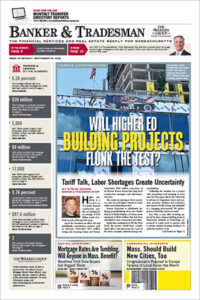The Boston Redevelopment Authority unanimously approved the Institutional Master Plan for Harvard University’s expansion into Allston Thursday night, marking a milestone for the much-revised project.
The project, on which construction was halted four years ago, is scaled back from what Harvard envisioned five years ago, according to a Harvard representative.
The approval comes after the university unveiled a 10-year, $38-million community benefits package at a community meeting earlier this month. The university is still working on the package, a Harvard representative said at the meeting.
The package could include establishing an in-person and online education system called AllstonX, funds for workforce development and $11 million toward Boston’s linkage program, according to reports.
A 17-member Harvard-Allston Task Force was formed in 2006 and has met regularly to facilitate Harvard’s Allston expansion. They’ve met more than 23 times, including weekly meetings this summer.
"Harvard, you’ve come a long way from where we were, when the opposition in this room was great against the development … I’m, quite frankly, very impressed," BRA Treasurer Consuela Thornell said at the authority’s Oct. 17 meeting.
The university filed the 280-page Institutional Master Plan on July 26. The document outlines nine projects over ten years, including an academic building, graduate student apartments and an athletic field.
With 1.4 million square feet of new construction, the project is expected to create 1,200 construction jobs. Five separate Harvard development projects in Allston will create an additional 1,150 construction jobs.
The project has been broken into three phases, starting with construction on new Harvard Business School buildings and athletic facilities through 2018, according to Task Force documents.
Allston has housed Harvard Stadium since 1903, and Harvard Business School moved into the area after World War II. The university now owns close to 350 acres of land situated between Soldiers Field Road and Western Avenue.
Before construction can begin, the Zoning Commission must approve the Institutional Master Plan and Harvard University must sign a cooperation agreement with the BRA, which outlines the community benefits of the development.






